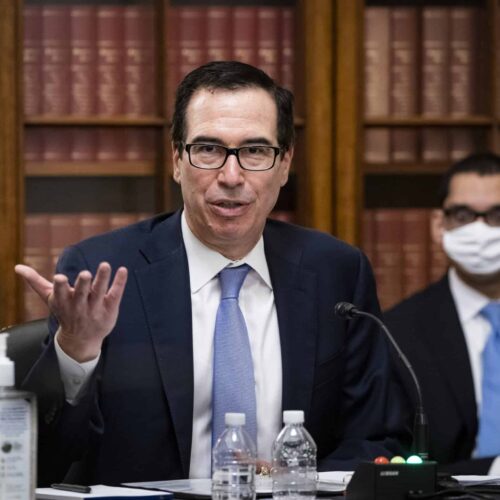Introduction
Updated on June 22, 2020: After Public Integrity filed the lawsuit, the Small Business Association said it would release information including the names of borrowers who received loans of above $150,000 and the amount of their loans within certain ranges. Public Integrity is still pursuing the lawsuit to get full transparency on the loan process.
Washington, D.C. — The Center for Public Integrity filed a lawsuit against the U.S. Small Business Administration Friday morning to compel the release of information on the recipients of more than $700 billion intended for small businesses affected by the COVID-19 pandemic.
The lawsuit came after Treasury Secretary Steven Mnuchin told Congress that these details would not be released as the information is “proprietary” and “confidential.” Other news organizations have also sued to make this information public.
Public Integrity CEO Susan Smith Richardson said, “Our government is spending billions of dollars to address the impact of the coronavirus pandemic. The public deserves to know who is benefitting and who is not, as the pandemic threatens to worsen inequality in our nation.”
The Paycheck Protection Program (PPP) was intended to provide forgivable loans to small businesses with less than 500 employees that had been hit hard by the COVID-19 pandemic. The program generated intense criticism after several publicly listed companies, such as Shake Shack Inc. and Ruth’s Chris Steak House, disclosed they received millions of dollars under the program, while numerous smaller businesses had not.
(Public Integrity, which has fewer than 50 employees, applied for and received $658,000 under the PPP program. Full disclosure here.)
Read more in Health
Coronavirus and Inequality
Small business loan data includes little about race
Small Business Administration released the loan data after Public Integrity and other news organizations sued the agency.
Barriers to the Ballot Box
‘I wanted my vote to be counted’: In South Carolina, a peek at COVID-19’s impact on elections
As coronavirus prompts polling place closures for primaries, burdens fall heavily on voters of color.


Join the conversation
Show Comments